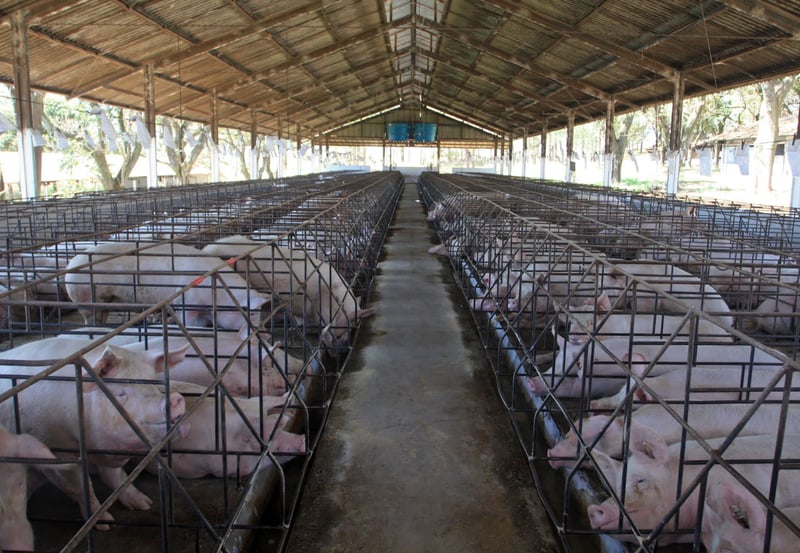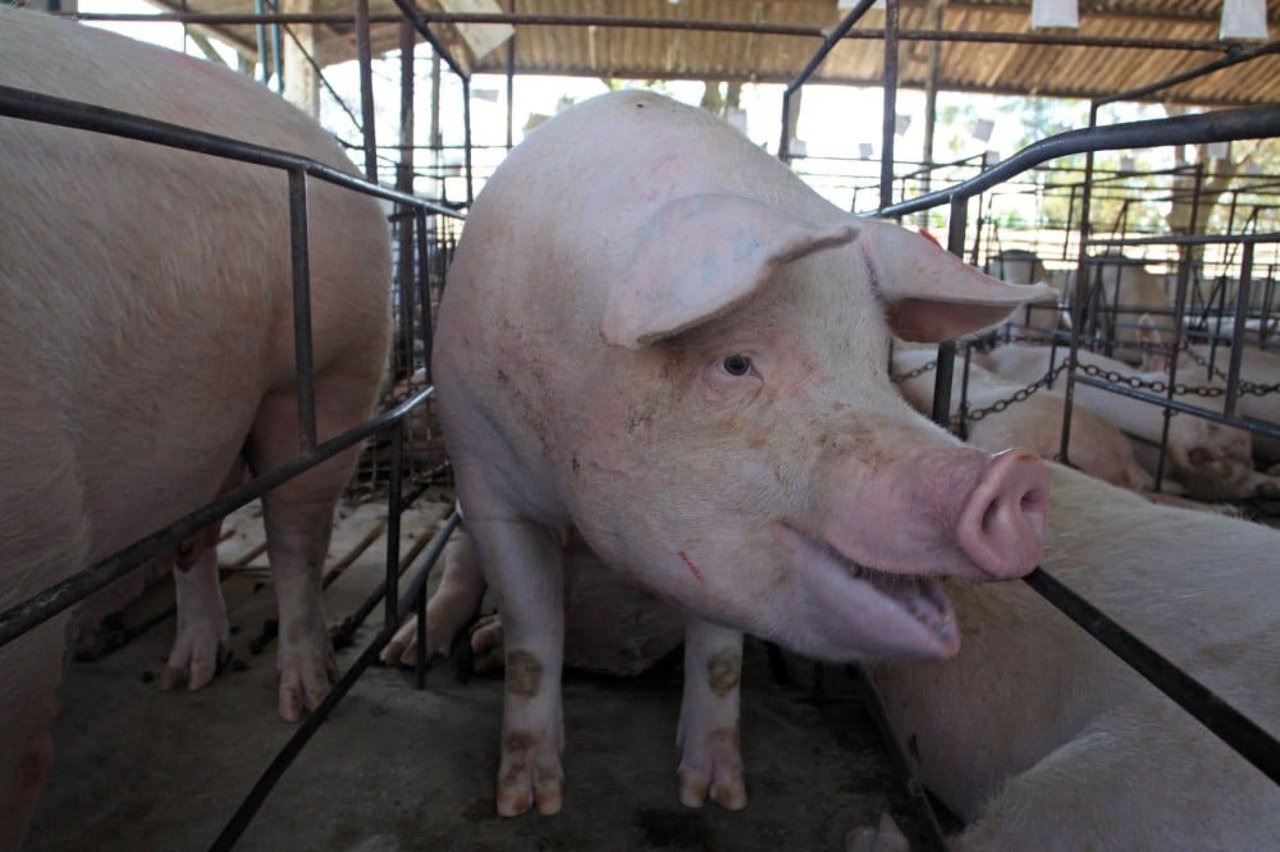
For the wellbeing of pigs and people, the overuse of antibiotics must no longer prop up factory farming
Since joining World Animal Protection, I’ve learnt a lot about the dirty secrets of factory farming. It inflicts horrendous cruelty on defenseless pigs. Many mother pigs are forced to live in cages, surrounded by their own waste in dark, squalid warehouses. Their tails are cut and their young are taken from them.
Animals are being pushed to the limits under the delusion they don’t experience pain. Treated as cogs in a machine, they are given the bare minimum to keep them alive.
My eyes have also been opened to a sinister development that is keeping modern factory farming afloat: the indiscriminate use of antibiotics to prop up the appalling treatment of pigs and other animals. In the era of superbugs, rampant antibiotic use on farms is a real danger to animals, people and our planet.
But now people are demanding change and the industry is starting to wake from its slumber. Animals are slowly being released from cages and given room to move and freedom to socialise. But factory farming is not over. Far from it.
The antibiotics problem
To produce more and more cheap meat, factory farming has resorted to a new band--aid solution to prevent squashed, stressed animals getting sick.
A band-aid that means farm animals grow quickly to ‘market weight’ without succumbing to illness, therefore reducing costs for big business.
That band-aid is antibiotics.
Farm animals are dosed with 131,000 tonnes of antibiotics every year, mostly in the food and water they consume. This is projected to reach 200,000 tonnes by 2030.
Deadly superbugs
Massive overuse of antibiotics creates conditions ripe for superbugs: bacteria that cannot be treated with medicine. Many of the antibiotics used in farming are critically important for human medicine, and superbugs can enter the food chain via the meat we consume.
Superbugs are responsible for the deaths of 700,000 people globally each year, and projected to rise to ten million deaths per year by 2050. The most vulnerable are children and elderly people, as well as those who work directly with farm animals.
There’s also evidence of environmental contamination, with antibiotic residue and superbugs found in water in areas surrounding factory farms across the world.
Factory-farmed mother pig in cage
We demand change
Our recent polling in Brazil, Thailand and Australia revealed that 72% of those surveyed were unaware pigs are routinely given antibiotics. When shown images of conditions pigs are kept in, most found them “upsetting”, “wrong” or “shocking”.
Four out of five people surveyed worry about how the routine use of antibiotics in farming might be impacting their health as consumers. We know from our work with leading pork producers that higher welfare conditions mean animals are less stressed, and the need for antibiotics is reduced.
Our new report, ‘Leading the way: Global pig producers say no to sow stalls’, shows that getting pigs out of cages and into groups, with opportunities to express natural behaviour, is good for animals and good for business.
Supermarkets must act
Pork is big business, with supermarkets spending millions each year to source pork from producers around the world. This gives them enormous influence over the way pigs are raised, and a responsibility to use that influence to improve production for pigs and for people.
Supermarkets should be talking to their meat suppliers about how farms can transition to higher welfare systems, while ensuring antibiotics are used responsibly.
Now my eyes have been opened, I can see how factory farming fails everyone. We have the right to be outraged and the right to demand better.
Sign the pledge for pigs
We’re working with producers to develop higher welfare systems, enabling pigs to be kept out of cages and in social groups.
You can make a difference. Sign our pledge now and demand supermarkets make a promise to sell pork from higher welfare farms.
Together, we can move supermarkets to source pork from pigs who are raised right.
